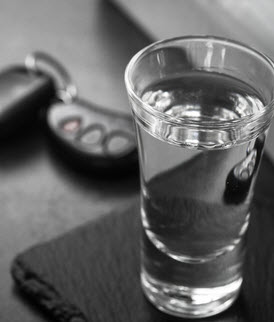Largely because it is such a powerful and widely-available drug, alcohol is a contributing factor in about a third of the fatal car crashes in Florida. What legal recourse do these victims have in civil court?
Alcohol is a depressant that slows reaction time, so impaired drivers take longer to react to approaching hazards. Alcohol also gives many people a sense of euphoria, which is great at parties but terrible on the roadways, because drivers rely so much on accurate judgements. Finally, alcohol impairs concentration, so impaired drivers cannot easily multitask; for example, many impaired drivers cannot quickly switch back and forth between watching the road ahead and checking their mirrors.
Direct Liability
If a driver’s BAC is above the legal limit, that driver is guilty of DUI as a matter of law. The same thing applies in negligence cases, because of the negligence per se (negligence “as such”) doctrine. In most negligence cases, the victim/plaintiff must prove five elements, as outlined below. But in negligence per se cases, victim/plaintiffs must only establish that:
- The tortfeasor violated a non-traffic penal law, such as DUI, and
- Said violation substantially caused the victim’s damages.
A variation of this rule also applies in traffic-only violations, such as running a stop sign. In these situations, the negligence per se rule creates a rebuttable presumption of negligence, making it easier for the plaintiffs to establish the elements of their cases.
Indirect Liability
Even if the tortfeasor was not “intoxicated” for criminal law purposes, the tortfeasor may still be liable for damages in civil court, because impairment starts at one drink. To establish liability in impairment-only cases, the plaintiff must establish the following elements:
- Duty: All drivers have a duty of reasonable care to avoid car crashes whenever it is safely possible to do so.
- Breach: Reasonably safe drivers obey the speed limit, concentrate on driving as opposed to their cellphones, and are sober.
- Cause: Lawyers often refer to this element as “but-for” causation, as in the car crash would not have occurred but for the tortfeasor’s impairment.
- Proximate Cause: Similarly, the impairment must be a substantial cause, as opposed to a minor factor.
- Damages: The plaintiff must suffer a physical injury; the injury could be personal or property only.
Basically, if the victim sustained only property damage, Florida’s no-fault law applies and there is no need to file a lawsuit to recover compensation for monetary losses. However, if the victim sustained a serious injury, the tortfeasor is also liable for nonmonetary damages, such as pain and suffering, in civil court.
Third Party Liability
Like some other states, Florida has a dram shop law that enables victims to sue persons or entities who negligently provide alcohol to people who later cause car crashes. Liability attaches if the defendant sold alcohol to:
- A person under 21 or
- Anyone who was “habitually addicted” to alcohol.
Strict liability normally applies to underage sales, so it is no defense that the person appeared to be over 21. In other cases, the plaintiff must prove, by a preponderance of the evidence (more likely than not) that the provider knew the tortfeasor was addicted to alcohol.
Contact Aggressive Attorneys
Victims of alcohol-involved car crashes have several legal options. For a free consultation with an experienced personal injury lawyer in Brandon, contact Reed & Reed. We do not charge upfront legal fees in negligence cases.
From our office in Brandon, Reed & Reed helps clients in Tampa, New Tampa, Plant City, East Hillsborough County and throughout the state of Florida.
Resource:
cdc.gov/motorvehiclesafety/impaired_driving/impaired-drv_factsheet.html

